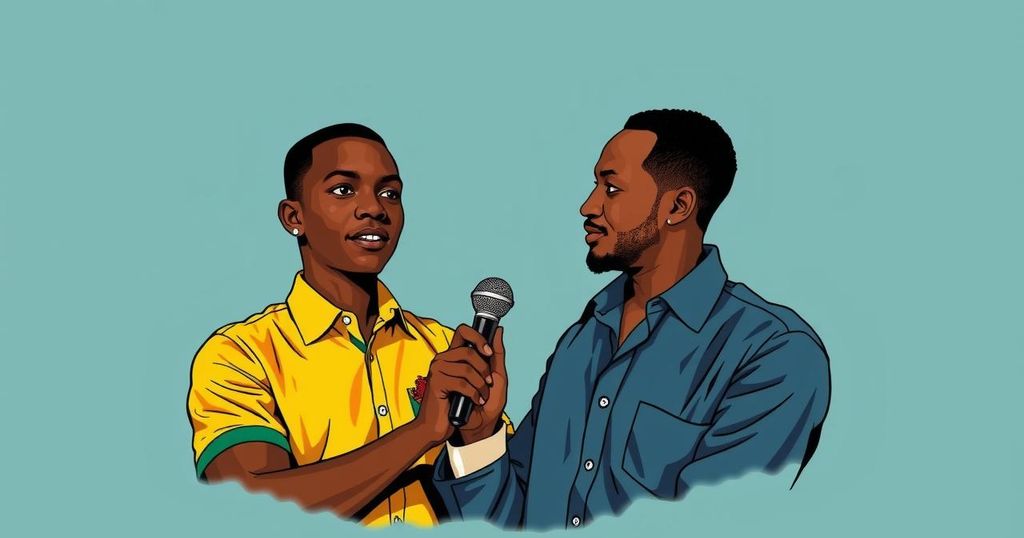Young Ghanaians view the presidential election as a chance to address economic hardships but feel constrained by limited candidate options. Vice President Mahamudu Bawumia and former President John Mahama are the primary contenders, each presenting distinct promises to tackle pressing economic issues. The atmosphere is marked by political rallies and public anticipation as voters prepare to choose their next leader amidst concerns of transparency in the electoral process.
Young Ghanaians are approaching the presidential election with hopes of overcoming the prevalent economic hardships. As they prepare to cast their votes, many express frustration with the limited choices available to them. The leading candidates are Vice President Mahamudu Bawumia of the ruling New Patriotic Party (NPP) and former President John Mahama of the National Democratic Congress (NDC). Both candidates have engaged in fervent campaigning, promising to address the pressing issues of high inflation, public debt, and unemployment.
Joseph Antwi, a first-time voter and trader from Accra, articulates the sentiments of many young citizens who feel let down by the current government, asserting, “I want to vote to kick out the current government because they have not been kind to young people.” Amid growing political rallies and heightened public interest, the election poses a critical juncture for the young electorate, who desire substantive change but are apprehensive about the effectiveness of their chosen candidates. The backdrop of illegal gold mining concerns further complicates the political landscape, emphasizing the necessity for transformative leadership ahead of the vote.
The upcoming presidential election in Ghana is a pivotal moment, particularly for the younger demographic who are confronting severe economic challenges. The nation, recognized for its economic prowess in West Africa, is currently grappling with issues such as soaring inflation and public debt. Young voters, like Joseph Antwi, are hopeful that their participation in the election will lead to the dismissal of the incumbent government, which they feel has failed to fulfill its promises. With a two-party system dominating the field despite numerous candidates, the constraints on voter choice remain a significant concern.
In summary, the presidential election in Ghana presents both an opportunity and a challenge for young voters, who are eager for change yet face limited options. The contrasting visions of the leading candidates reflect the urgency with which the electorate seeks solutions for economic difficulties and social issues, including unemployment and illegal mining. The stakes of this election are particularly high, as Ghanaians hope for a credible democratic process amidst fears of potential electoral malpractice.
Original Source: apnews.com







